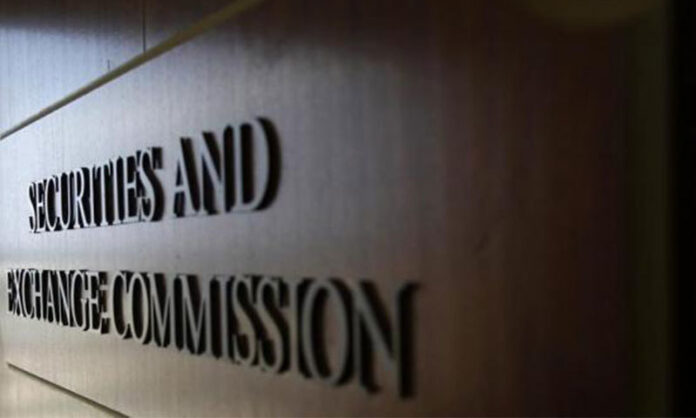ISLAMABAD: The Securities and Exchange (SECP) Policy Board met in Islamabad at the SECP Headquarters under the Chairmanship of Professor Khalid Mirza the other day.
The Policy Board approved the proposed amendments to the Companies Act, 2017 and the Limited Liability Partnership Act, 2017 in respect of FATF recommendation 24 on Transparency of Legal Persons. These are aimed to prevent misuse of companies and LLPs for money-laundering and terrorist financing for prohibiting the issuance of bearer shares and the obligation to trace ownership by 25 percent shareholders to reach the original natural persons.
The Board also approved the significant amendments relating to revamping the Listed Companies (Further Issue of Shares) Regulations, 2018 to facilitate and promote the mobilisation of capital. In this connection, the Board further asked the Commission to reconsider removal of the underwriting requirement in respect of rights shares. As advised by the Regulations Committee, the Board also endorsed amendments pertaining to NBFC Regulations, 2008, finalised after public consultation.
The Policy Board was updated by the SECP chairman in relation to key developments and initiatives undertaken by the SECP, which include:
Successful implementation of the practice of index-based market halts at PSX as per international best practice which triggers a 45 minute suspension of trading once the KSE-30 index moves 4 percent either way for more than five minutes enabling market participants to cool off, settle margins, regroup etc.
Approval of certain additional measures to facilitate and reduce cost of doing business for market participants in the matter of collection of market-wide concentration margin, use of “near cash” instruments as acceptable collateral by the NCCPL, and close-out mechanism plus release of 50 percent margin in DFC market.
Improvement in SECP’s internal governance, by conducting comprehensive root cause analysis to identify governance shortcomings within the organisation as well as structural and operational review of the SECP in order to identify and initiate a number of significant measures to upgrade institutional performance.
Some other initiatives in-pipeline include chatbot, repository of laws, secured transactions registry, LEAP – the Commission’s wide-ranging Initiative towards achieving end-to-end digitalisation of SECP and the recently introduced “Sandbox” facilitation for entrepreneurs.
The Policy Board appreciated the work done by SECP and expressed support for the Commission’s recent endeavors.
The Policy Board was briefed by the SECP on Asian Development Bank’s Financial Market Development Programme and its draft policy matrix. Some Board members expressed reservations with the recommendations of ADB which they felt were rather light and perhaps did not seek to resolve the fundamental issues of the capital market. It was noted with regret that the Policy Board was inadequately consulted by the ADB consultants.
The Policy Board discussed the National Accountability Bureau (NAB) response to the Commission’s letter regarding transfer of cases and secondment of SECP officers and decided to take legal opinion in the matter, particularly interpretation of the expression “full and complete assistance” (and what it entails) used in NAB’s governing statute with respect to what NAB can require from any body.
Mutual Funds Association of Pakistan (MUFAP) made a presentation on the progress achieved by the mutual funds industry following acceptance of MUFAP’s demands and reduction in the SECP levied fee on Assets under management (AUMs). The Board expressed the view that whereas the industry had displayed growth, a more progressive and robust approach by mutual fund managers was needed to reach desirable goal posts over the next two to three years. It was noted that while the industry’s AUMs had increased substantially from Rs.578 billion to Rs.692 billion in about six months, the increase in mutual fund investors was only about 40,000 – 50,000 as indicated by MUFAP. The Board felt that a more aggressive adoption of digitalization modes was warranted. After due consideration, the Board decided not to make any change in the regulatory fees currently charged by the SECP.
The SECP Policy Board, in pursuance of Section 12 of the SECP Act 1997, comprises ex-officio members of the Ministries of Finance, Commerce, and Law, SBP, SECP and persons of eminence from the private sector.





Required all updates when its done